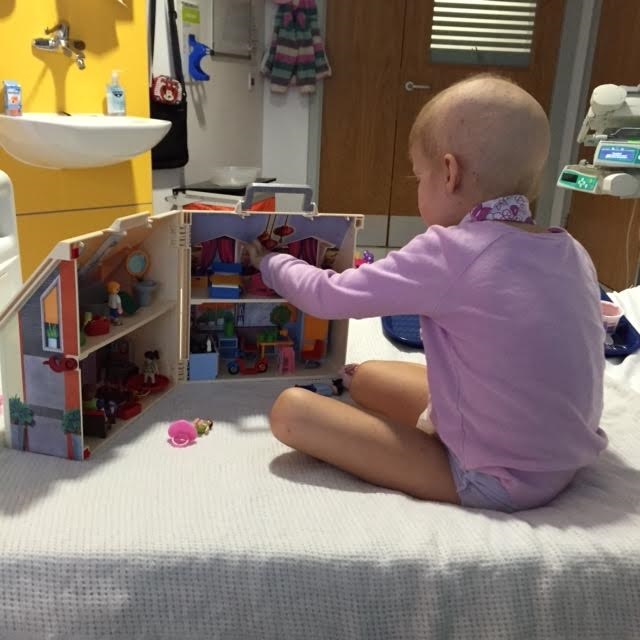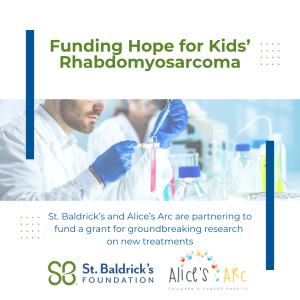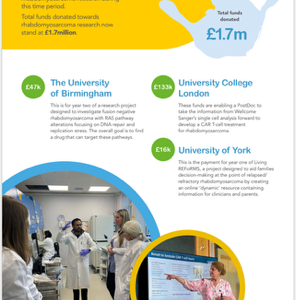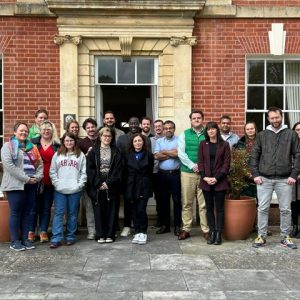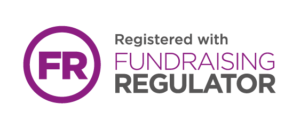Chief Investigator, Professor Meriel Jenney, commented on the opening of FaR-RMS: “I am delighted that the FaR-RMS trial is open, the trial will move Rhabdomyosarcoma (RMS) research forward by answering key questions about treatment for patients with both newly diagnosed and relapsed RMS. The innovative and overarching trial design will allow additional research questions to be added without needing to open new trials in the coming years. We are confident that the trial results will have a real impact on RMS treatment recommendations in the future.”
Frontline and Relapse Study in Rhabdomyosarcoma (FaR-RMS)
The FaR-RMS trial explores how the treatment for Rhabdomyosarcoma (RMS), a tumour of soft tissue can be better managed. The Trial opened in September 2020 and as of beginning of December 2020 10 sites are open in England and Scotland with more sites set to open across the UK including in Wales and Northern Ireland shortly. It has also opened in Europe – in the Netherlands Denmark and Norway, and is due to be launched in Australia and Israel shortly. In total there are currently 17 countries expected to participate, and additional countries have signalled interest.
This clinical trial will study several aspects of treatment for RMS, both for patients newly diagnosed with the disease and also at the time of relapse. It is open to patients of all ages (children, TYA and adults) across Europe. It has a multi-arm, multiple-stage design to identify early indications of benefit (or lack of benefit) of new therapies.
The research design and research questions are summarised below:
1. Chemotherapy
(Phase 1b)
As evidence for potential effectiveness of new drugs to treat RMS becomes available, these will be combined with existing drug treatment regimens. Selected centres will be responsible for testing these new combinations, these centres are able to provide specific support to closely monitor patients and identify any toxicity early (Phase 1b study).
Does the addition of new drugs to standard chemotherapy for patients newly diagnosed improve survival?
Once the new combinations have been established as safe through the phase 1b study, the new combinations will then be compared to the standard existing regimen for patients with ‘High Risk’ or ‘Very High Risk’ RMS.
Does the addition of new drugs to standard chemotherapy for patients with relapsed disease improve survival?
New drugs that are evaluated as safe in phase 1b will be combined with standard chemotherapy that is used for patients with Relapsed RMS. These new combinations will then be compared to the standard existing regimen.
Does giving maintenance chemotherapy for longer improve survival?
Maintenance chemotherapy is an important part of treatment for patients with HR and VHR RMS. FaR-RMS will compare standard maintenance chemotherapy with a longer duration of maintenance chemotherapy. For patients with localised (HR) disease the comparison is between 6 months (standard) and 12 months. For patients with metastatic disease and those with localised disease with unfavourable histology and positive lymph nodes (VHR), the comparison is between 12 months (standard) and 24 months.
2. Radiation
Localised disease
For patients whose tumour can be surgically removed after 12 weeks of chemotherapy, is it better to receive radiotherapy before or after surgery?
Currently the standard way to deliver radiotherapy is following surgery, however there are reasons why it may be better to deliver the radiotherapy first such as better definition of the radiation field, better preservation of normal tissue and the fact that the tumour acts as a natural ‘spacer’ for the radiation field. Where it is deemed safe, eligible patients who are suitable for surgery will be randomly allocated to pre- or post operative radiotherapy.
Do higher doses of radiotherapy reduce the risk of the tumour recurring compared to standard doses of radiotherapy?
Some patients have tumours that are at a higher risk of recurrence but we do not know whether increasing the dose of radiotherapy will improve the outcome for these patients, so a higher dose of radiation will be compared to the standard doses.
Metastatic disease
Following intensive chemotherapy, does radiotherapy to all sites of the tumour (where possible) improve survival compared to radiotherapy given only to the region of the main tumour?
For all of the radiotherapy questions we will also asking the patients about the impact of their treatment on their quality of life.
Relapsed RMS
It is expected that the relapse trial question will start recruiting patients in the Spring of 2021. We are expecting to offer relapsed patients Vincristine and Irinotecan chemotherapy with either temozolomide (standard of care) or a new drug called regorafenib.
3. Other questions within FaR-RMS
Imaging
When a patient is diagnosed, a PET scan and MRI are usually used to evaluate the extent of the disease. The study is reviewing these scans together with further imaging after 3 cycles of chemotherapy to evaluate whether the response of the imaging predicts how well the tumour will respond in the long term.
Pathology and Biology
Based on previous biological studies, all patients will have their tumour tested for the PAX-FOXO1 gene fusions that will contribute to deciding the “risk group” and treatment plan for each patient. This trial will address the question – does using fusion gene status improve risk stratification and patient outcomes?
Beyond this, there is a unique opportunity to undertake biological research within FaR-RMS that aims to address key questions that may ultimately benefit patients including:
Can pathology, genetic data and molecular ‘signatures’ differentiate new subtypes of RMS to improve prediction of outcome and define a more personal approach to assigning new treatments?
Does assessment of liquid biopsies, such as blood, for evidence of tumour provide an effective means to monitor response to treatment and detect recurrence of disease earlier than possible by imaging? This may enable earlier standard or novel interventions that may improve outcomes.
Can we use molecular data and models made from FaR-RMS patients’ tumours to derive, screen and test potential new treatments for high-risk RMS patients?
Design and Sponsorship for the FaR-RMS trial
The FaR-RMS Trial was designed by a group of international specialists who are members of the European Paediatric Soft Tissue Sarcoma association (the EpSSG) together with the team from the University of Birmingham, Cancer Research UK Clinical Trials Unit (CRCTU). The CRCTU is international Sponsor for the Trial. The FaR-RMS trial is based on the EpSSG RMS treatment recommendations, some of which have been revised following the results of the EpSSG RMS 2005 study.
